Alps Trip 2019: trip to Salzberg via the Tyrolean Farms
The Inn river is still high and overflowing a bit and the farmlands adjacent to the river are sometimes flooded. For a time, we thought we the roads might be flooded, and we would have to cancel our trip to the the Museum of Tyrolean Farms, but luckily we did not.
John especially liked the Museum of Tyrolean Farms. We had a very knowledgeable local guide who explained living conditions on a farm in the 1600-1800s. I liked the kitchens, and wondered what it was like to cook a meal on the equipment they had.
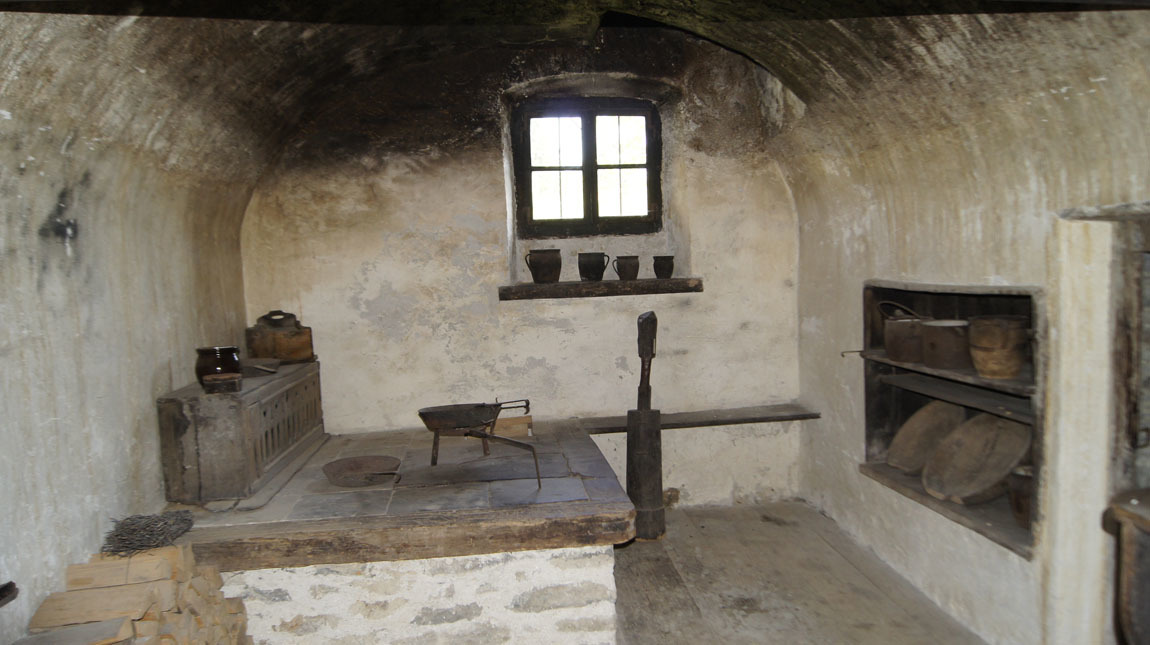
The museum as we drive up.
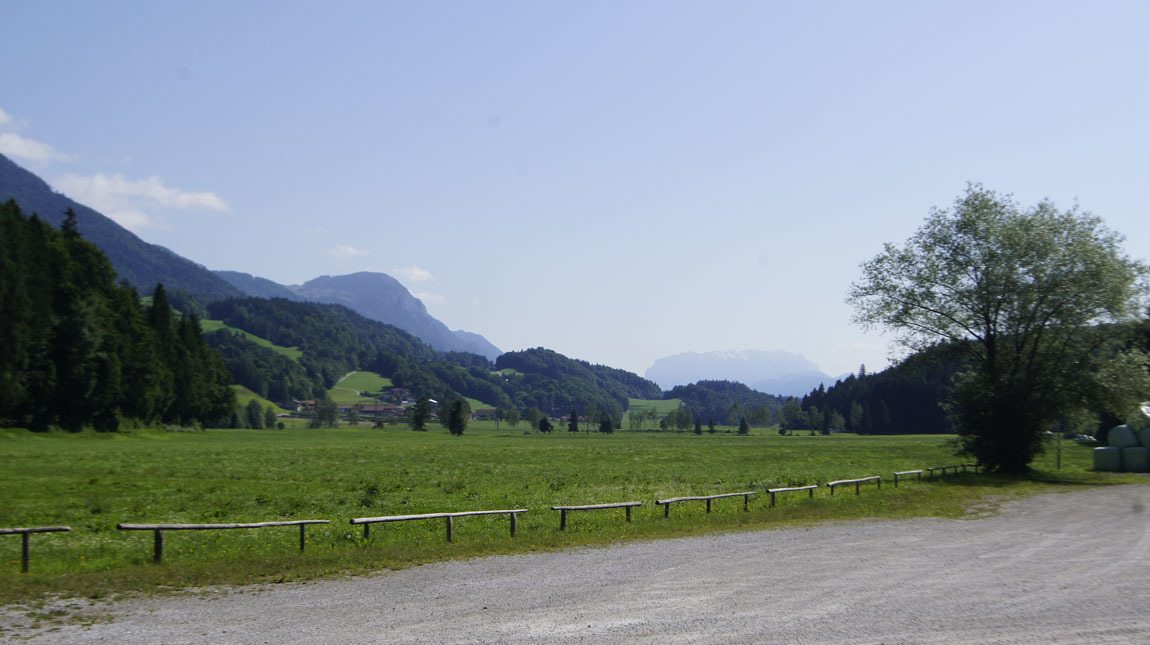
We walk a short path to the gathering of old farms. There were several different farms - each dismantled at their original site and reconstructed here.
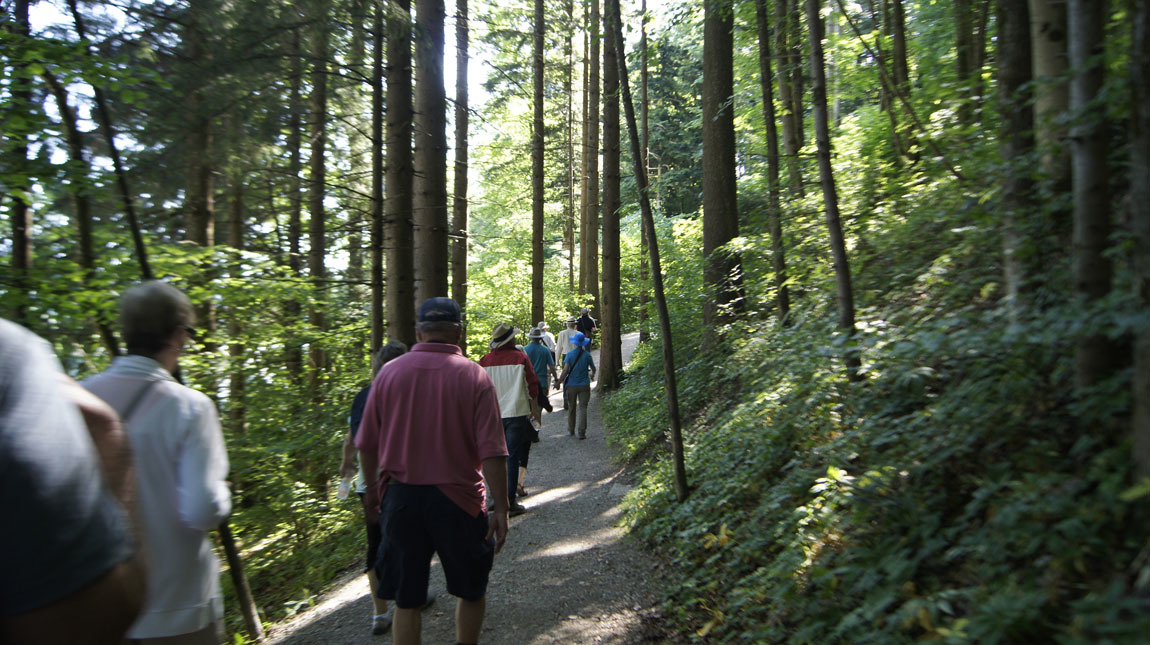
This is the first, and I think the oldest farm that we came to. Our guide first showed us the "loo", which was right outside the front door. Then she sat us down in the main room of the house, about 16x16 feet. That was where the farm owner, his family, and the workers gathered to eat. It was too dark (and crowded with our group) to get a good photo. But, I used the flash to get this one of the corner of the room:
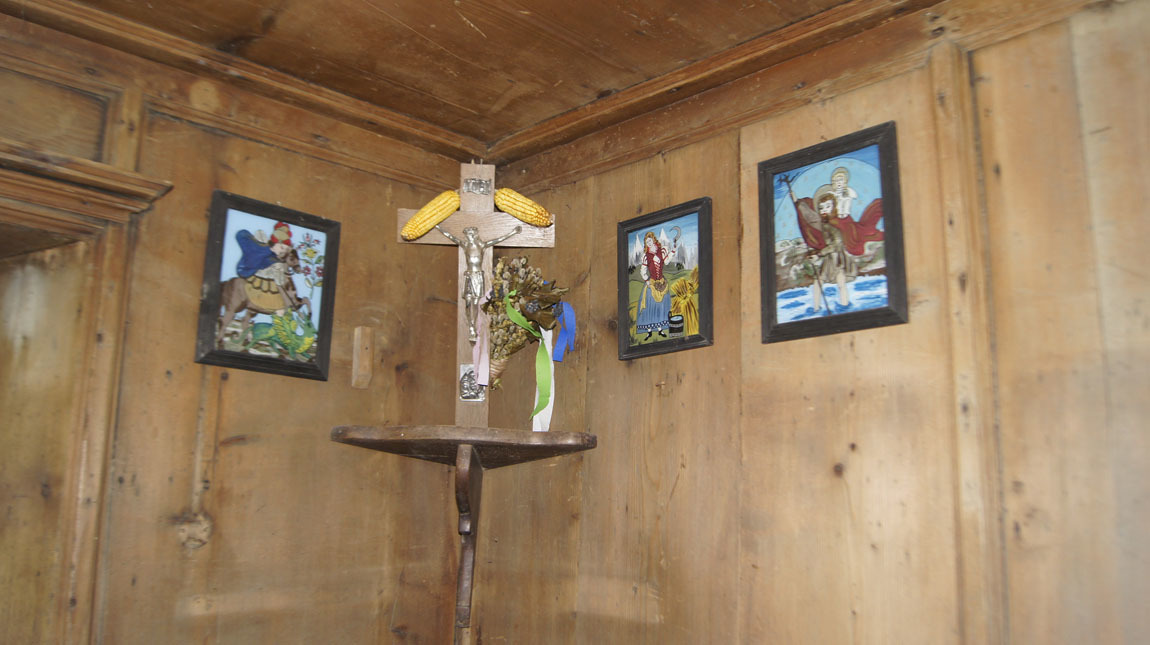
The life on this farm sounds unpleasant to us. The farm was not passed on to a son until the father died, and only one son got the farm while the others had to move out and work elsewhere. Sons could not get married (or have a lover) until they owned the farm. Children were sometimes used as child slave labor, with barely a crust of bread to survive on. It was cold, food was scarce, medical help barely existed. Our guide painted a picture of the life that was not idyllic. Bleak is more like it.
The rooms in this house are the main room, the kitchen, and the stable. Below are some photos of the stable. The photo below of the stable is dark, and out of focus in spots. Little was I to know that my 9 year old alpha 33 Sony camera was about to bite the dust.
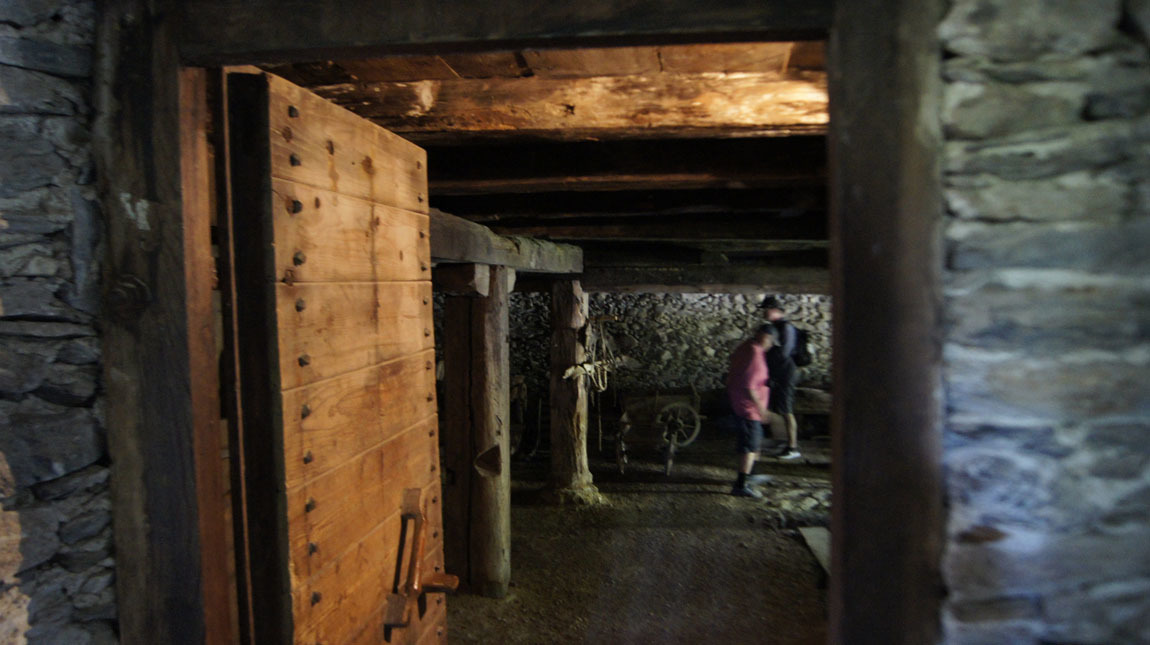
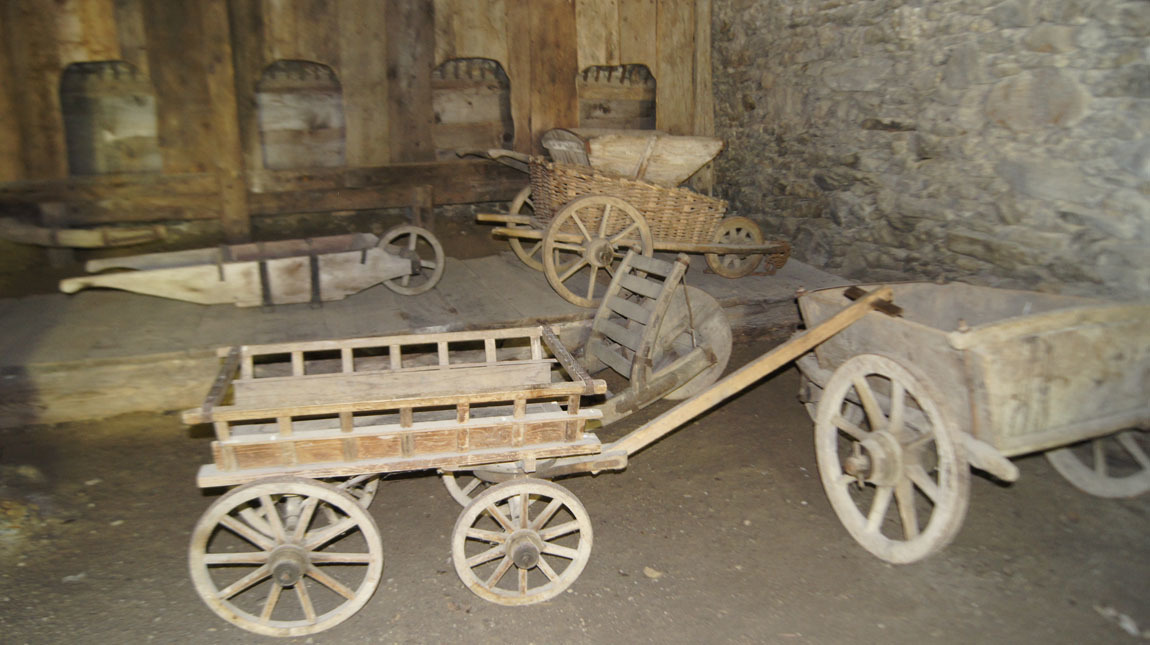
The next farm home that we came to:
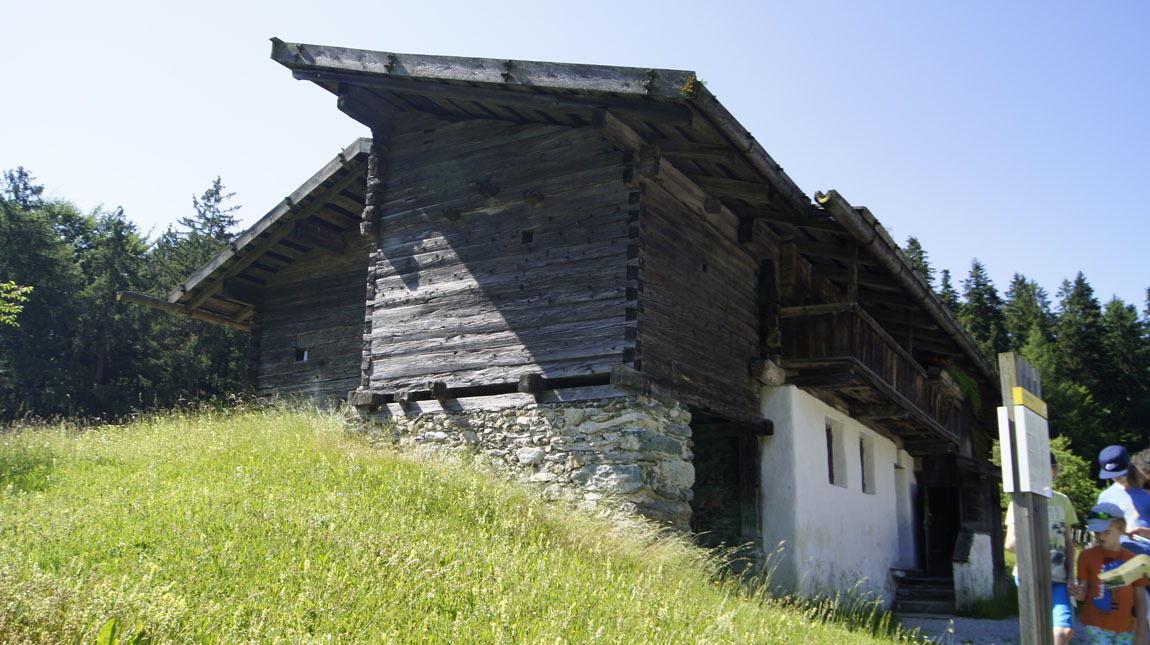
A mill used for making wood boards. There was also a saw mill.
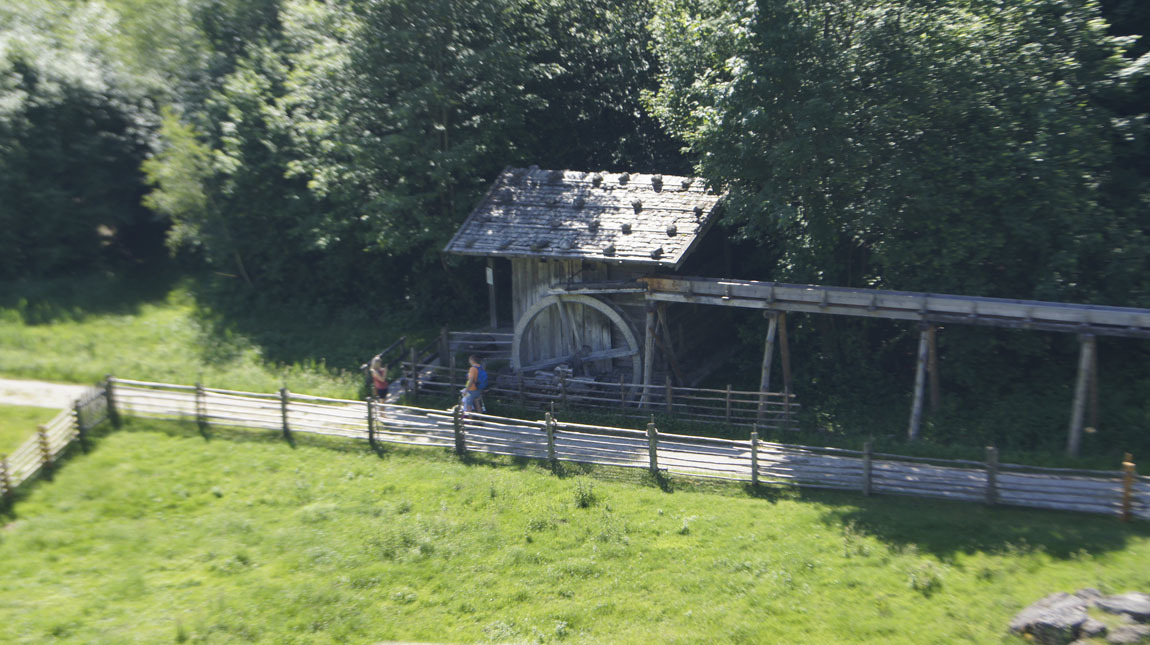
Why are there rocks on the roof in the photo below? Because nails were expensive when these farms were built, and so they would lay long boards across the shingles, then cover them with rocks to keep them in place.
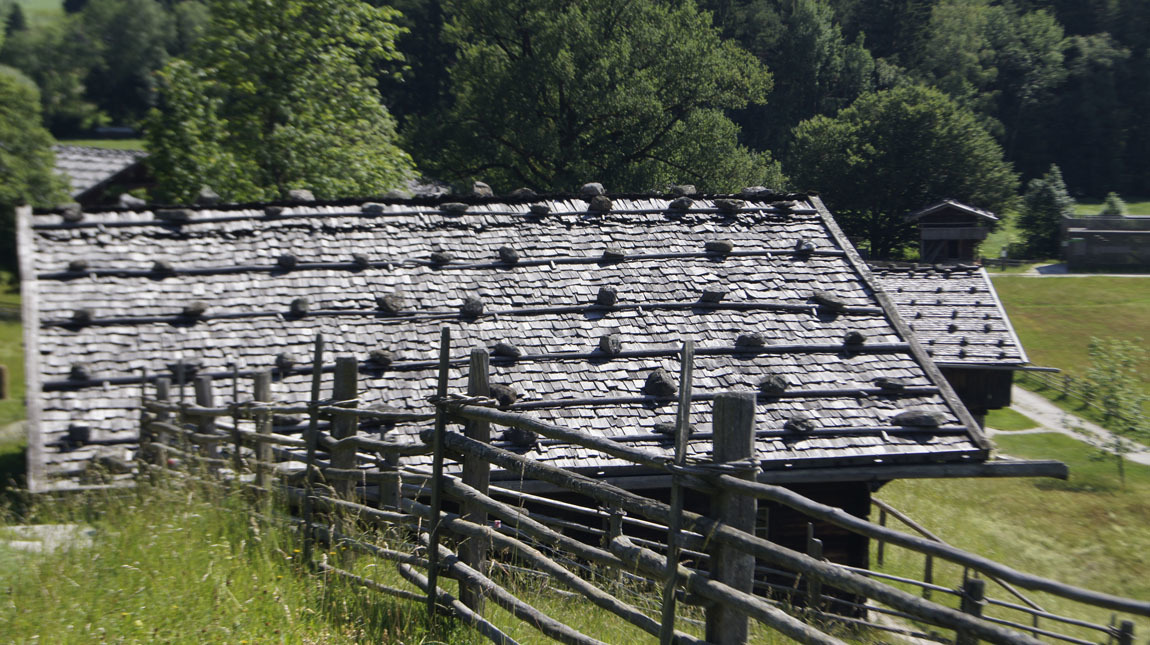
A view of several of the farms in the area.
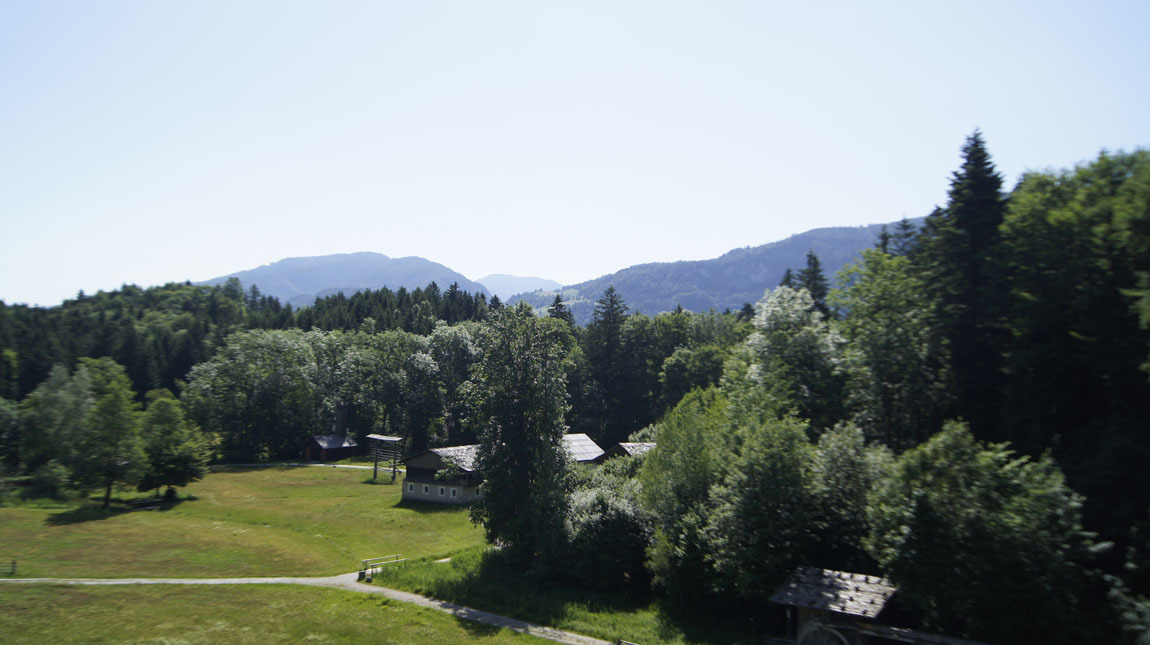
Here is a pot they used to cook their meals:
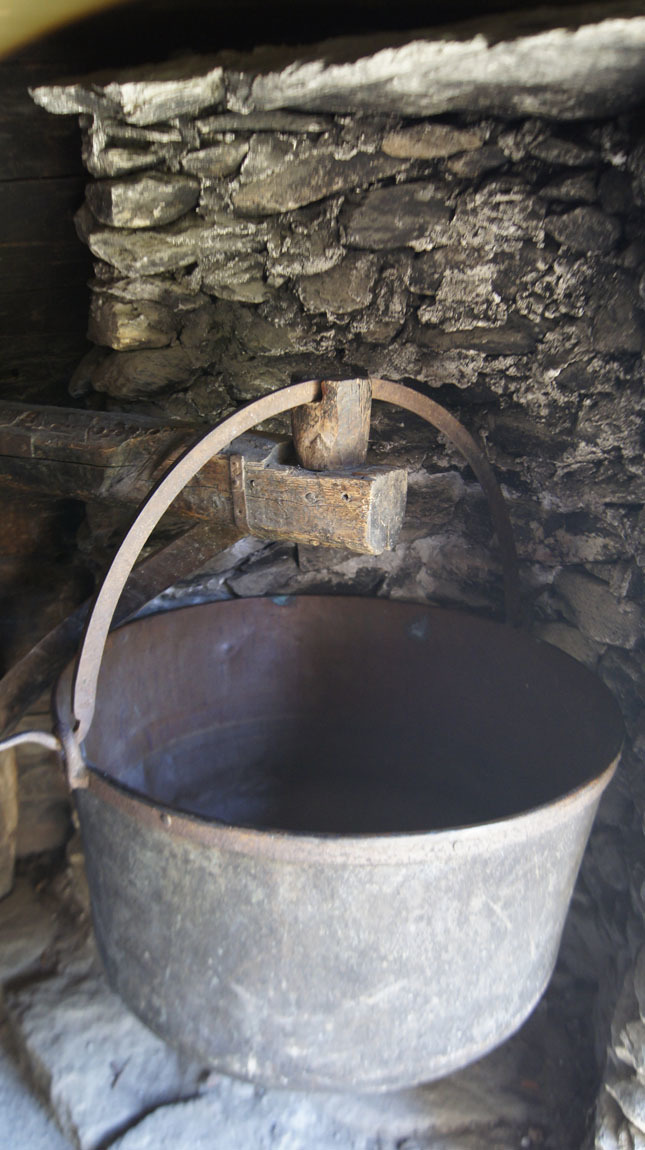
A farmhouse.
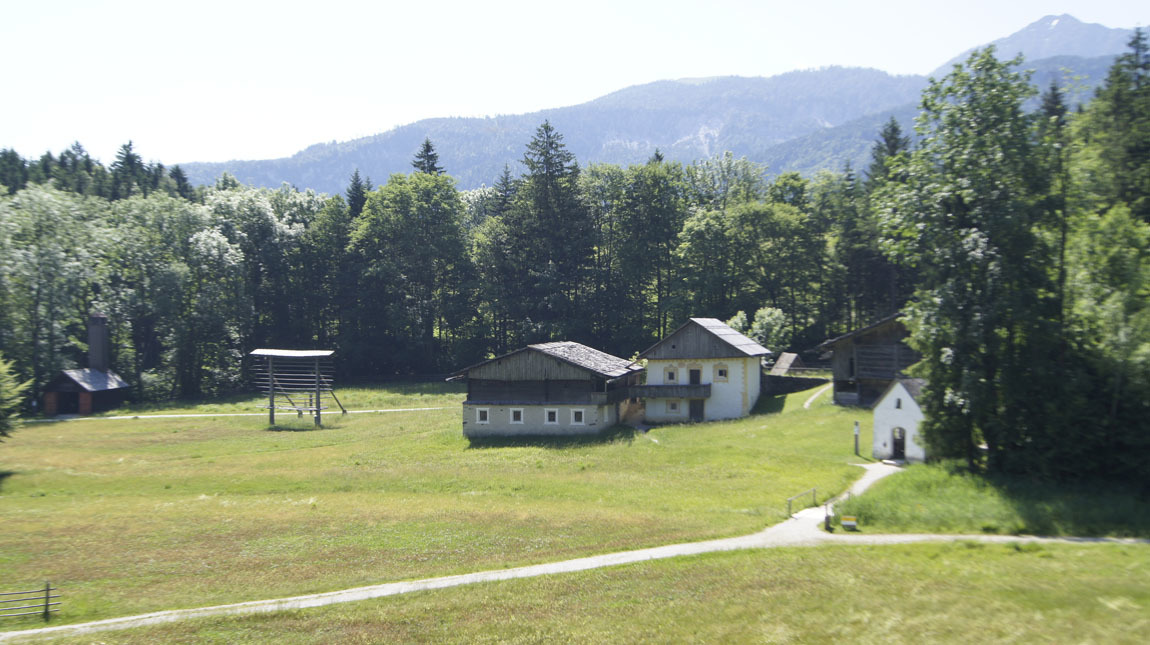
Our guide took us through the farmhouse below:
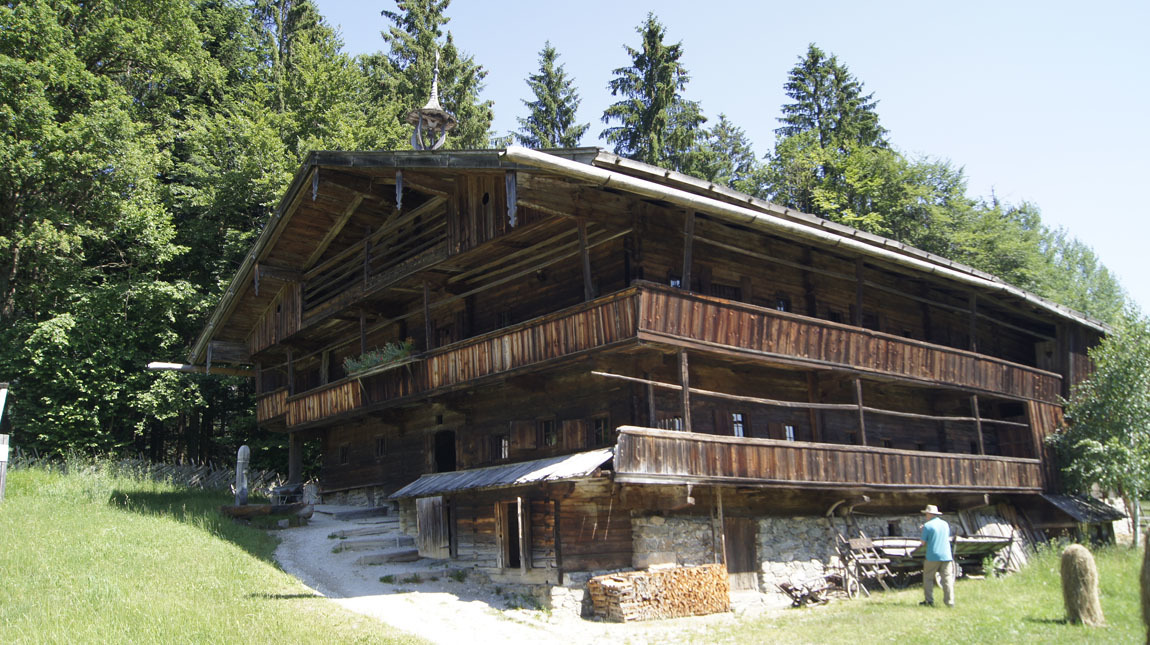
Note the hole in the wall above this door. Part of the reason for it is to let spirits of the dead out - since medical centers were hard to find, injured and ill people were brought into the farm homes to die. They also served to ventilate these crowded and perhaps stinky and perhaps smokey farm homes.
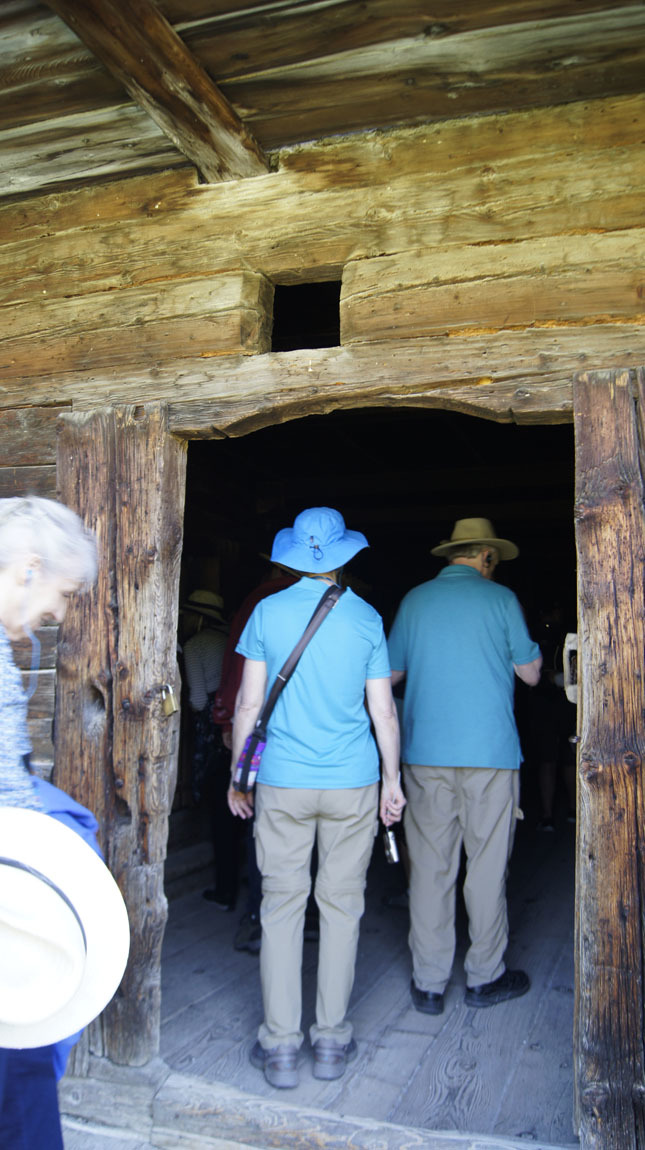
One of the interior rooms:
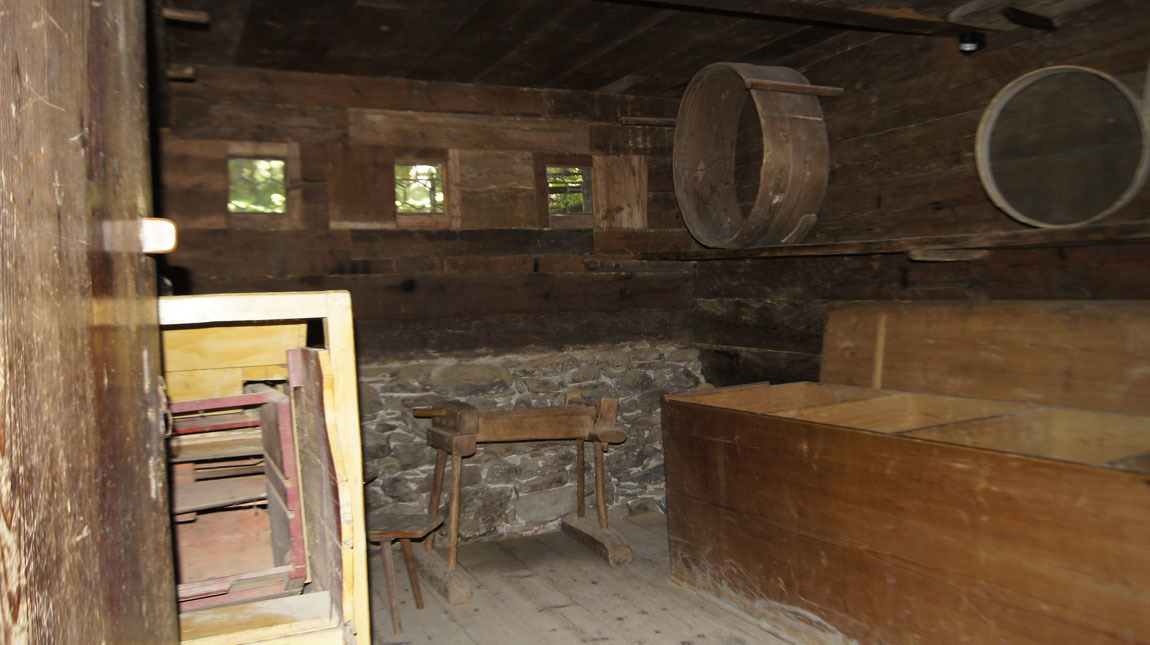
I love the dents in the middle of these stairs.
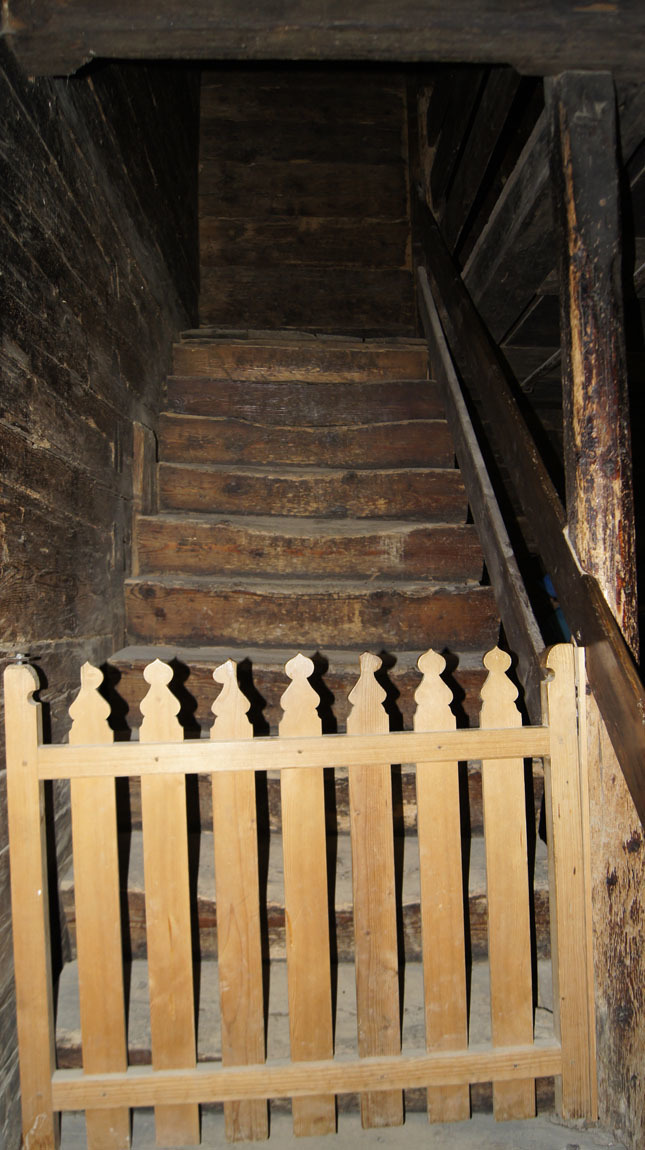
The women slept in one room, the men in another room. Only the farm owner could cohabit with a wife. And each bed in the room below was shared by two or more people.
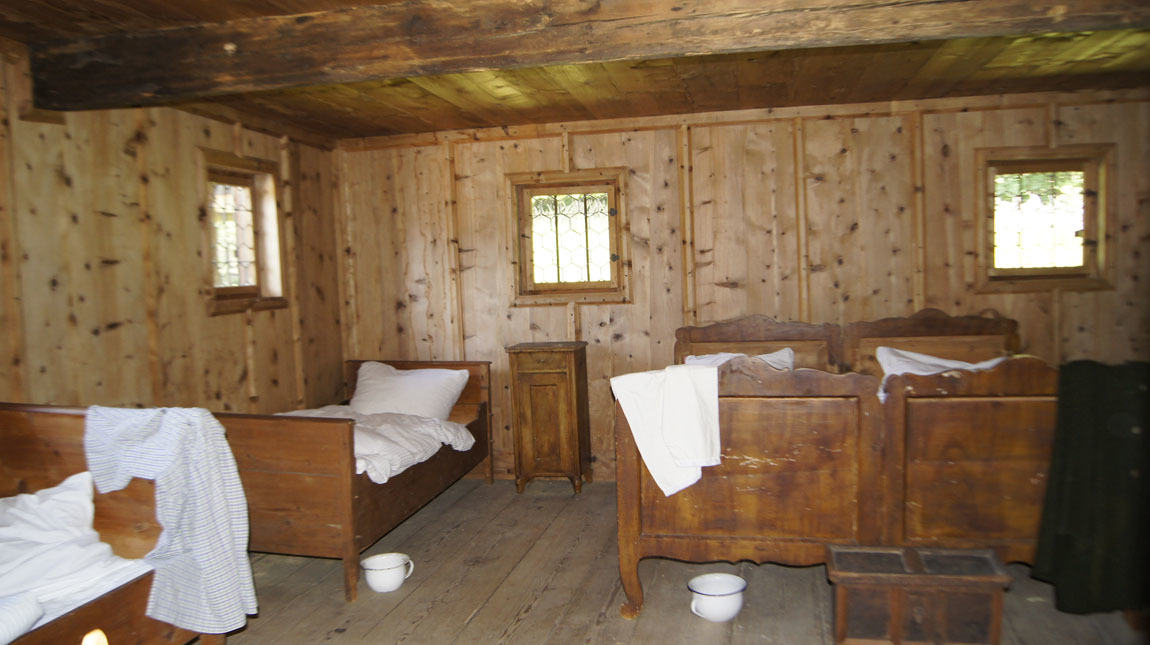
This is the kitchen. Behind the stove is a wooden runway for chickens to come in and get warm.
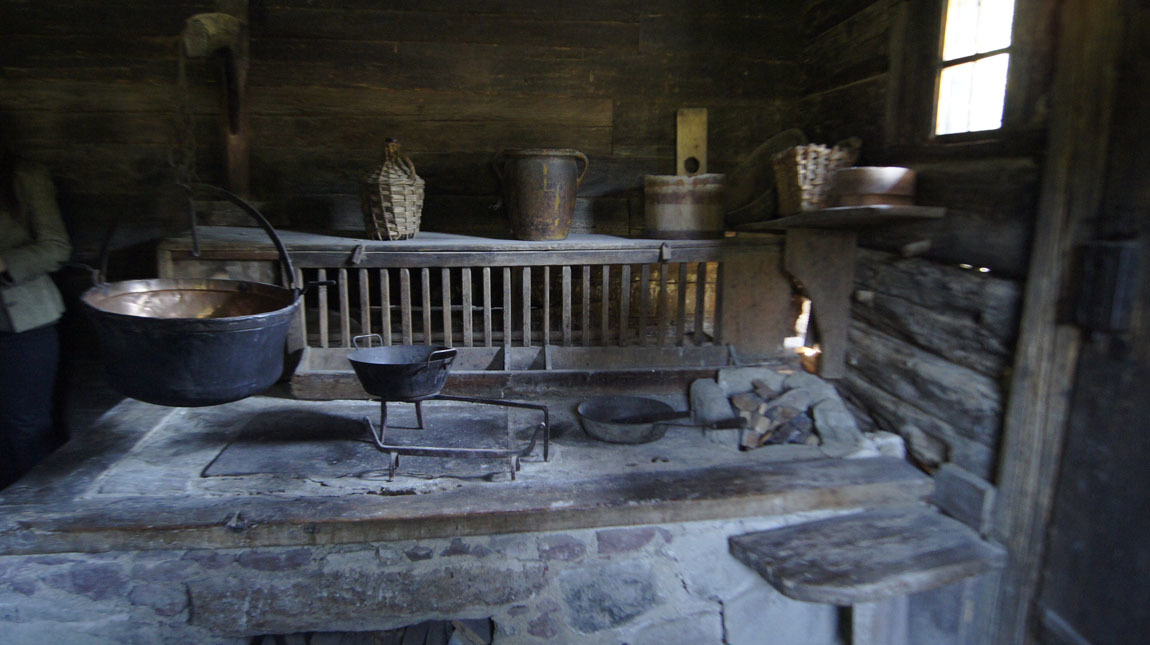
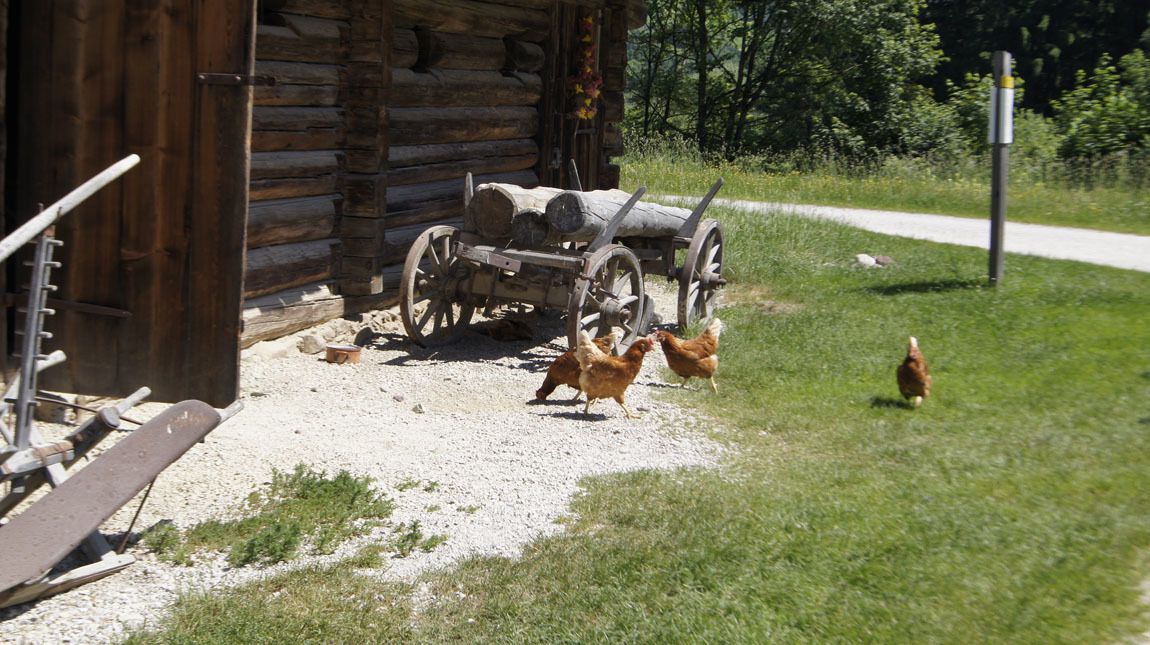
Outside, by the mill. It's so green!
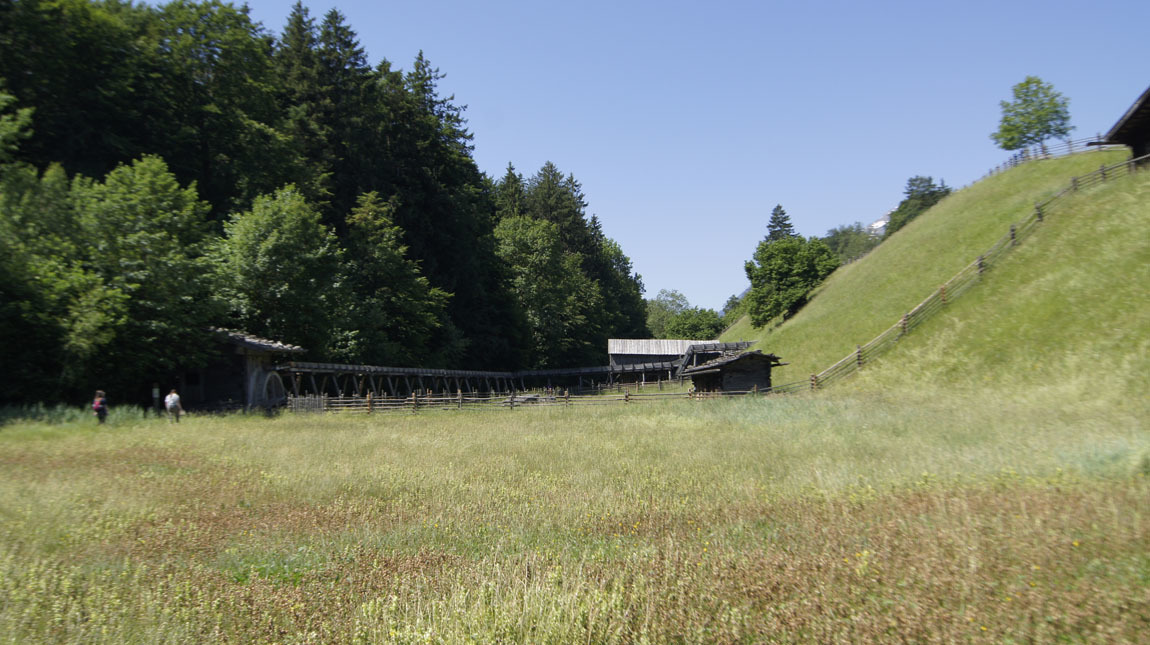
A Swiss goat. Goats in Switzerland produce the milk that is made into so many Swiss cheeses.
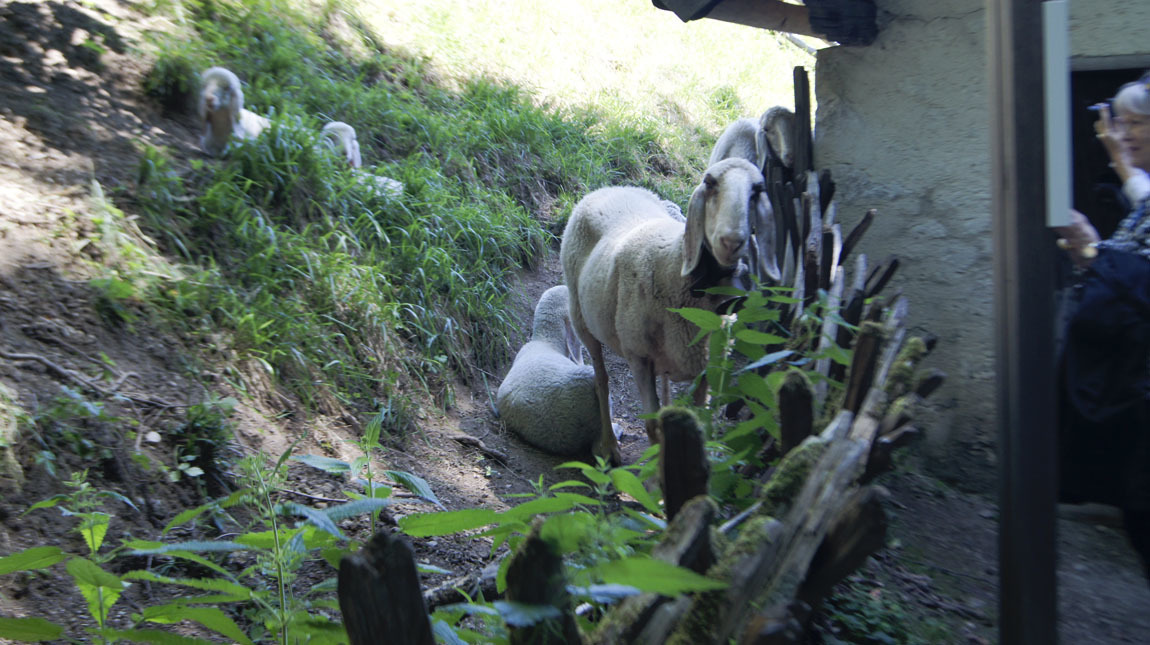
We all decided to have lunch at the farms, in the garden area of the restaurant. The view was great and the food was great!
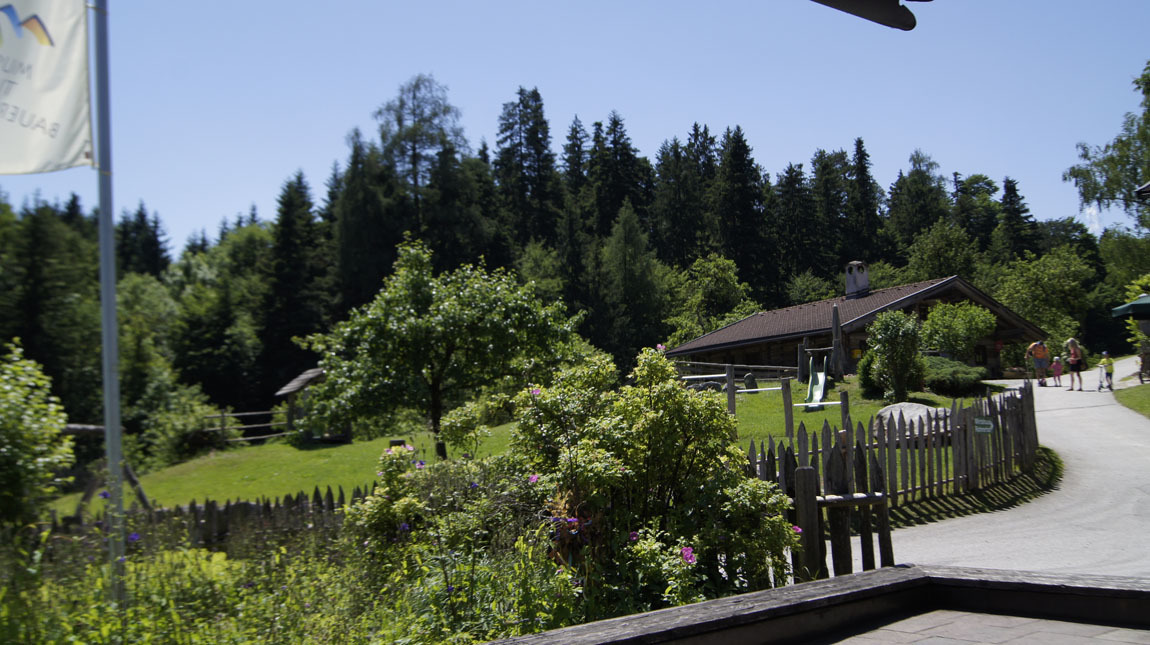
Eventually the time comes for us to get back on the coach, and leave the pretty, interesting farm museum. Back on the bus. No more walking in the green fields. Just views out the window.
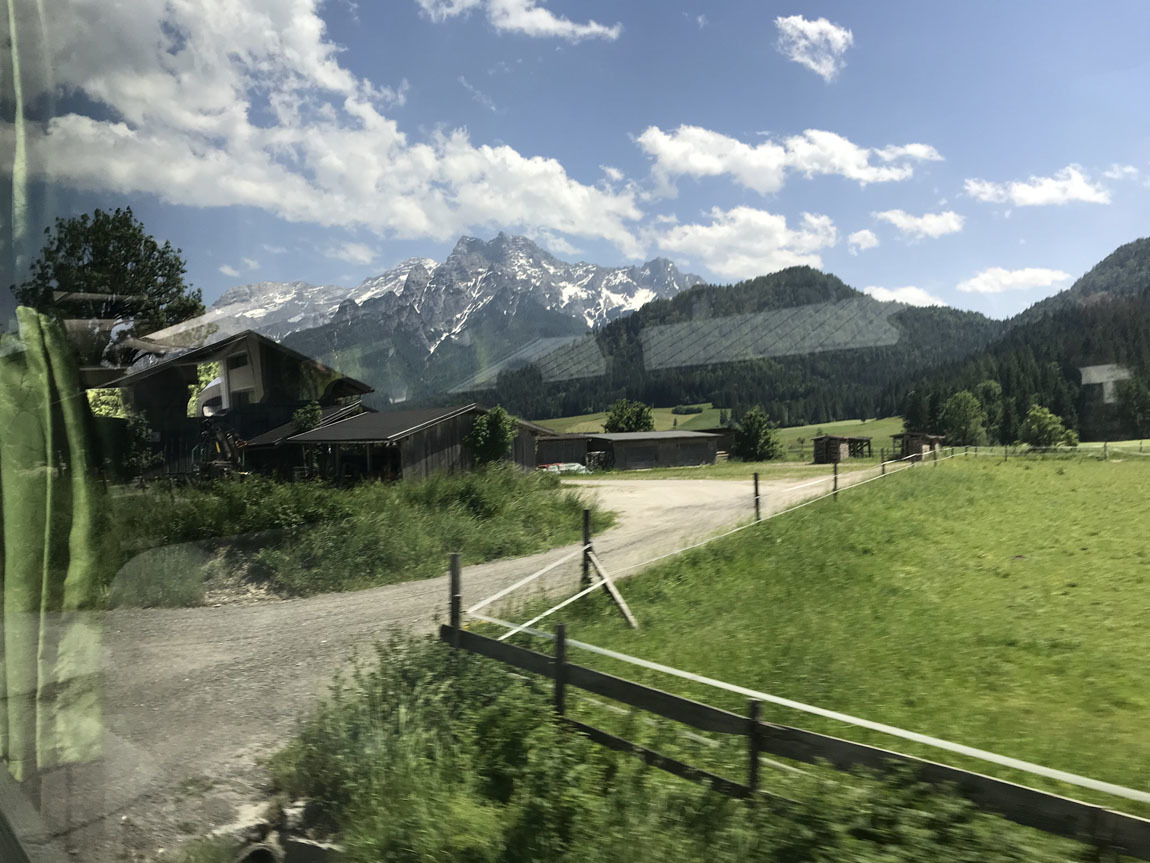
The drive to Salzberg was long and fraught with traffic. We are finally checked in to our room in a large old hotel building in Salzberg by 3:45 pm. We went for a walk to find wine, and we found a store with berries too. Dinner was at the hotel with the group. After dinner a classical music concert was planned, but John and I skipped it. It was hot outside, and we retreated to our air conditioned room. It had been a long day of travel.
next Alps trip entry
first Alps trip entry
John especially liked the Museum of Tyrolean Farms. We had a very knowledgeable local guide who explained living conditions on a farm in the 1600-1800s. I liked the kitchens, and wondered what it was like to cook a meal on the equipment they had.

The museum as we drive up.

We walk a short path to the gathering of old farms. There were several different farms - each dismantled at their original site and reconstructed here.

This is the first, and I think the oldest farm that we came to. Our guide first showed us the "loo", which was right outside the front door. Then she sat us down in the main room of the house, about 16x16 feet. That was where the farm owner, his family, and the workers gathered to eat. It was too dark (and crowded with our group) to get a good photo. But, I used the flash to get this one of the corner of the room:

The life on this farm sounds unpleasant to us. The farm was not passed on to a son until the father died, and only one son got the farm while the others had to move out and work elsewhere. Sons could not get married (or have a lover) until they owned the farm. Children were sometimes used as child slave labor, with barely a crust of bread to survive on. It was cold, food was scarce, medical help barely existed. Our guide painted a picture of the life that was not idyllic. Bleak is more like it.
The rooms in this house are the main room, the kitchen, and the stable. Below are some photos of the stable. The photo below of the stable is dark, and out of focus in spots. Little was I to know that my 9 year old alpha 33 Sony camera was about to bite the dust.


The next farm home that we came to:

A mill used for making wood boards. There was also a saw mill.

Why are there rocks on the roof in the photo below? Because nails were expensive when these farms were built, and so they would lay long boards across the shingles, then cover them with rocks to keep them in place.

A view of several of the farms in the area.

Here is a pot they used to cook their meals:

A farmhouse.

Our guide took us through the farmhouse below:

Note the hole in the wall above this door. Part of the reason for it is to let spirits of the dead out - since medical centers were hard to find, injured and ill people were brought into the farm homes to die. They also served to ventilate these crowded and perhaps stinky and perhaps smokey farm homes.

One of the interior rooms:

I love the dents in the middle of these stairs.

The women slept in one room, the men in another room. Only the farm owner could cohabit with a wife. And each bed in the room below was shared by two or more people.

This is the kitchen. Behind the stove is a wooden runway for chickens to come in and get warm.


Outside, by the mill. It's so green!

A Swiss goat. Goats in Switzerland produce the milk that is made into so many Swiss cheeses.

We all decided to have lunch at the farms, in the garden area of the restaurant. The view was great and the food was great!

Eventually the time comes for us to get back on the coach, and leave the pretty, interesting farm museum. Back on the bus. No more walking in the green fields. Just views out the window.

The drive to Salzberg was long and fraught with traffic. We are finally checked in to our room in a large old hotel building in Salzberg by 3:45 pm. We went for a walk to find wine, and we found a store with berries too. Dinner was at the hotel with the group. After dinner a classical music concert was planned, but John and I skipped it. It was hot outside, and we retreated to our air conditioned room. It had been a long day of travel.
next Alps trip entry
first Alps trip entry
Comments
No comments yet
Add Comment